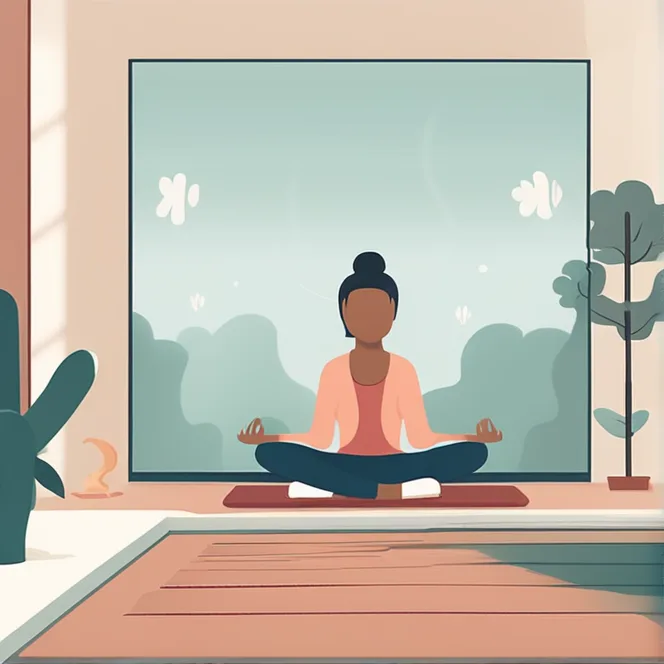
Mindfulness Meditation for Anxiety Relief
Discover how mindfulness meditation can serve as a powerful tool for managing anxiety, promoting calm, and enhancing overall well-being.
article by Hina Kurosawa
Introduction to Mindfulness
Mindfulness meditation is an ancient practice that has gained modern popularity as a stress-relief technique. It involves maintaining a moment-by-moment awareness of our thoughts, feelings, bodily sensations, and surrounding environment with a gentle, nurturing lens. Initially rooted in Buddhist traditions, mindfulness has transcended cultural boundaries to help countless individuals confront the chaos of modern living. As the world becomes increasingly connected, our minds often struggle with informational overload—anxiety being a common consequence. In this light, mindfulness presents itself not only as a practice but as a sanctuary for the anxious mind.

The Science Behind Mindfulness
Scientific research supports the use of mindfulness meditation as a remedy for anxiety. Neuroscientists have found that consistent practice can lead to the reduction of gray matter in the amygdala, the region of the brain associated with stress and anxiety responses. Furthermore, it fosters an increase in gray matter in the prefrontal cortex, which is involved in planning, reasoning, and self-regulation. This neural restructuring suggests that mindfulness can alter our brain to better cope with anxious states, creating new pathways to peace and rational response amidst life’s turmoils.

Meditation Techniques for Anxiety
Beginners seeking relief through mindfulness can explore a variety of techniques, such as focused attention on the breath, body scan meditation, and loving-kindness meditation. Focused breathing anchors the mind in the present, preventing the spiral of anxious thoughts. Body scans increase body awareness, grounding individuals in physical sensation, thus allowing emotional distress to dissipate. Loving-kindness meditation extends compassion to oneself and others, effectively reducing the isolation and judgment that often accompany anxiety. Regardless of the technique, the key to efficacy is consistent practice.

Astrological Implications for Healing
In 2024, Jupiter's transit into Taurus emphasizes a time for grounding and stability. This planetary movement aligns well with mindfulness practices, including meditation, which encourage a down-to-earth, centered approach to life’s stressors. With Uranus also in Taurus, breakthroughs in personal growth are favored, particularly in the realm of mental health. Embracing mindfulness during this time may lead to profound transformations in how we manage our emotional well-being and anxiety.

Creating a Personalized Meditation Routine
Developing a personal mindfulness routine does not require a one-size-fits-all approach. Each person’s astrological sign offers unique insights into their dispositions and stressors. For instance, a fiery Aries may benefit from short, focused meditations to harness their abundant energy, while a contemplative Pisces might enjoy deeper, longer sessions to fully immerse in their rich inner world. By tailoring mindfulness practices to individual astrological guidelines, practitioners can optimize their journey towards tranquility and self-discovery.
Overcoming Obstacles to Mindfulness
One common challenge in adopting mindfulness meditation is the misconception that a ‘clear mind’ is the goal. In reality, the practice is about observing thoughts without judgment, not eliminating them. This is particularly pertinent as Neptune continues its transit through Pisces in 2024, enhancing our connection to spirituality, but also potentially leading to confusion if not approached with clarity. It is essential to be patient and gentle with oneself when thoughts drift, using this as an opportunity to redirect focus empathetically.
Embracing Mindfulness in Daily Life
Integrating mindfulness extends beyond scheduled meditation sessions; it can permeate every aspect of daily life. Small, mindful moments—like pausing to breathe deeply before answering an email, savoring the taste of a meal, or walking attentively—compound over time, significantly lowering anxiety levels. In the fast-paced Saturnian world of structure and time, where Saturn in Pisces reinforces the need for spiritual structure, these snippets of mindfulness offer a refreshing break and a powerful tool for creating a balanced, serene state of mind.
Published: 12/14/2023
Modified: 12/14/2023
More predictions
Come back here soon to learn more about yourself and your future


Achieving Mindfulness Without Meditation
Discover practical ways to cultivate mindfulness in everyday life without the need for traditional meditation practices.


Mastering Meditation Techniques
Discover simple, effective meditation techniques to foster mindfulness, clarity, and spiritual well-being.


Meditation For Better Sleep
Discover how mindfulness meditation can enhance your sleep quality, providing relief from insomnia and promoting overall well-being.